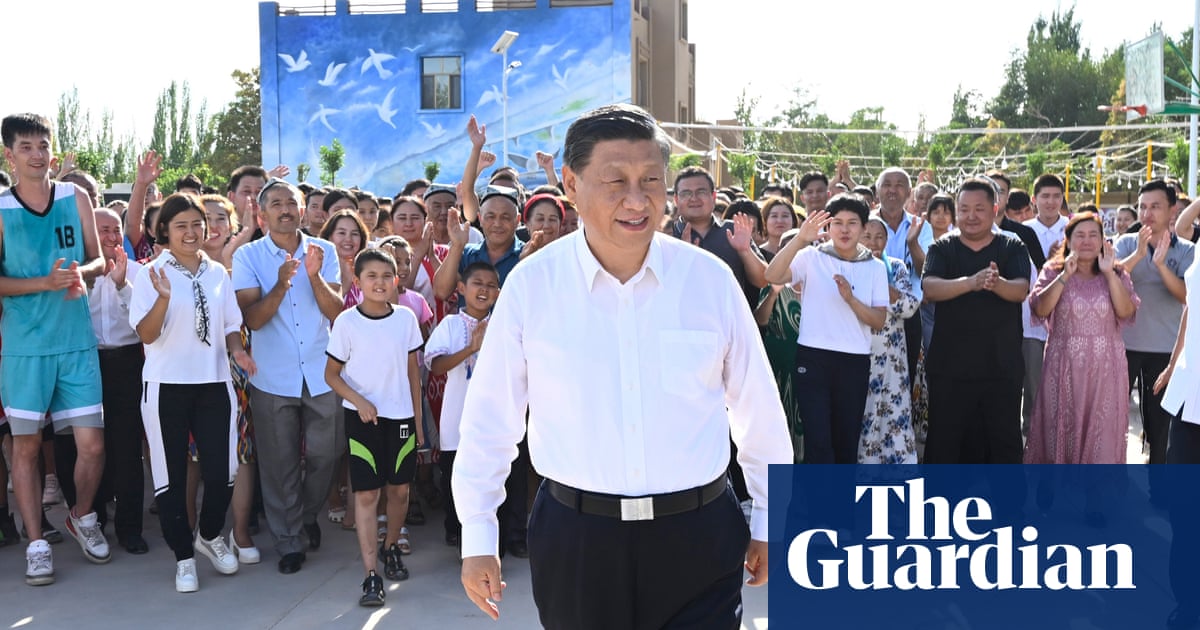Turkish delegation to pay visit to China’s Xinjiang
China has said it will welcome a Turkish delegation to Xinjiang, two months after the United Nations human rights chief visited the region to investigate allegations of widespread abuses.
On the sidelines of a meeting of the Association of Southeast Asian Nations in Cambodia, Chinese Foreign Minister Wang Yi told his Turkish counterpart Mevlut Cavusoglu on Wednesday that “China has always taken an attitude of being open and transparent on issues related to Xinjiang”.
Wang pledged to communicate closely over the issue and added that, as emerging economies, the two countries had closely intertwined interests and similar positions, and should promote cooperation, according to a Chinese foreign ministry statement.
Cavusoglu said Ankara firmly adhered to the one-China policy not only on the Taiwan question but also on issues concerning Xinjiang, according to the Chinese statement.
He added that the Turkish side was glad UN High Commissioner for Human Rights Michelle Bachelet had visited Xinjiang and hoped to stay in contact with Beijing over the planned tour.
The two sides did not provide further details of the visit.
Bachelet’s trip was the first to China by a UN human rights high commissioner since 2005. Beijing said it “achieved positive and practical results”, but the United States voiced “deep concern” over China’s alleged “efforts to restrict and manipulate” the visit.
The Chinese government has been accused of forced sterilisation and mass internment of members of the Uygur ethnic group and other Muslim minorities in the far-western region – an allegation it has repeatedly denied, insisting the internment camps are vocational training centres for deradicalisation and to tackle terrorism.
After the visit, Bachelet said that while she could not assess the full scale of the “vocational education and training centres”, she was concerned about the lack of independent judicial oversight of the facilities, allegations of the use of force and “unduly severe restriction on legitimate religious practices” inside the centres.
She also called on Beijing to review all its counterterrorism and anti-radicalisation policies to make sure they complied with international human rights standards.
The issue of Xinjiang has also been among the most sensitive issues in Chinese-Turkish relations and Ankara’s support could be potentially important to China as it plays host to an estimated 50,000 Uygurs, the largest diaspora outside Central Asia.
Beijing has said the two countries should respect each other’s sovereignty and is worried that an initiative from Ankara to strengthen the political role of the Organisation of Turkic States – a name adopted last November – will increase its influence among Turkic-speaking groups, including the Uygurs.
The group, which was first established in 2009 as the Cooperation Council of Turkic-speaking States, has its headquarters in Istanbul.
Mevlut Cavusoglu and Wang Yi on the sidelines of meetings of foreign ministers on East Asia cooperation in Cambodia. Photo: Xinhua
Its other members are Azerbaijan, Kazakhstan, Kyrgyzstan and Uzbekistan, with Turkmenistan and Hungary as observer states.
On Wednesday, the two sides also talked about food security challenges caused by the war in Ukraine. The Turkish side also called for a more balanced economic and trade relationship and more frequent direct flights between the two countries.













